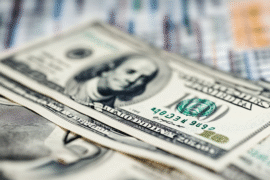This article may contain references to products or services from one or more of our advertisers or partners. We may receive compensation when you click on links to those products or services. Nonetheless, our opinions are our own.
Introduction
Are you eager to leave the country? If yes, you need to find out how dividends are taxed if you are on a one-way ticket to a foreign state. It doesn’t matter whether you set up a limited company in a foreign county or invest in other overseas businesses; the government requires you to pay taxes.
This article explores the tax implications of receiving dividends from overseas sources. It breaks down all the scenarios in which these dividends from overseas sources may be taxed, taking into account factors such as resident status and tax treaties.
On top of that, it offers insights for people living overseas, outlining how their tax obligation may differ depending on the tax laws of their home country and residency statuses. Let’s go through the following sections to find out more.
What’s Foreign Income and What Types Are Taxed?
Foreign income encompasses earnings obtained from jurisdictions beyond the borders of your country. In the UK, for example, it encompasses earnings obtained from territories beyond the physical borders of England, Northern Ireland, Wales and Scotland. Notably, the Isle of Man and the Channel Islands are categorised as foreign in this case.
How Are Dividends Taxed?
Citizens in the United Kingdom may need to pay taxes on their foreign incomes. You’ll need to pay income tax, which’s the most popular. Income tax includes:
- Foreign investment income like savings interest and dividends
- Rental income on foreign property
- Wages – if you work abroad
- Income from pensions held in foreign states
Paying tax depends on whether you’re a United Kingdom resident. If you aren’t a United Kingdom resident, you’ll only pay tax on the income you earn in the country. And if your income has been double-taxed by the foreign country as well as the UK Government, you can file a Foreign Tax Credit Relief (FTCR). The amount you can claim back varies from one country to another. Also, your income tax affects the amount you receive back when you claim Foreign Tax Credit Relief.
How Dividends Are Taxed
Yes, you can get dividends as long as you’ve shares in a foreign company. You can earn a dividend income on a yearly basis without having to pay taxes. Also, you don’t pay tax on a dividend revenue that’s within your Personal Allowance.
You only pay tax on dividend income above your dividend allowance. Also, you don’t pay tax on dividend income from stocks in an ISA. The amount of tax you pay on dividend amount above your dividend allowance depends on the income tax band, which includes higher rate, basic rate and additional rate. To know your tax band, just add your entire dividends to the other income. Remember, you may pay tax at over a single rate.
Do I Pay Taxes If I Live Abroad?
You still need to pay tax on the income you earn from the UK as long as you live overseas. This includes:
- Savings interest from bank accounts and dividends
- When you sell residential property
- Rental income
- Pension
- Salary/wages
If you haven’t paid tax on the overseas income, you need to apply for a certificate of residence. This certificate proves you are eligible for relief.

Reviewed and edited by Albert Fang.
See a typo or want to suggest an edit/revision to the content? Use the contact us form to provide feedback.
At FangWallet, we value editorial integrity and open collaboration in curating quality content for readers to enjoy. Much appreciated for the assist.
Did you like our article and find it insightful? We encourage sharing the article link with family and friends to benefit as well - better yet, sharing on social media. Thank you for the support! 🍉
Article Title: Are Overseas Dividends Taxed? What if I Live Abroad?
https://fangwallet.com/2023/08/30/are-overseas-dividends-taxed-what-if-i-live-abroad/The FangWallet Promise
FangWallet is an editorially independent resource - founded on breaking down challenging financial concepts for anyone to understand since 2014. While we adhere to editorial integrity, note that this post may contain references to products from our partners.
The FangWallet promise is always to have your best interest in mind and be transparent and honest about the financial picture.
Become an Insider

Subscribe to get a free daily budget planner printable to help get your money on track!
Make passive money the right way. No spam.
Editorial Disclaimer: The editorial content on this page is not provided by any of the companies mentioned. The opinions expressed here are the author's alone.
The content of this website is for informational purposes only and does not represent investment advice, or an offer or solicitation to buy or sell any security, investment, or product. Investors are encouraged to do their own due diligence, and, if necessary, consult professional advising before making any investment decisions. Investing involves a high degree of risk, and financial losses may occur including the potential loss of principal.
Source Citation References:
+ Inspo











































